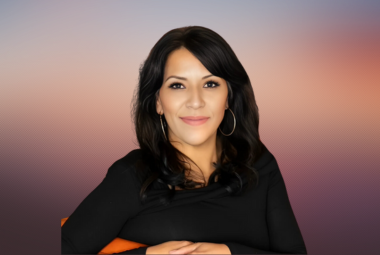Technology roles come in all shapes and sizes. So, in light of March being Women’s History Month, we spoke with Elantis’ Director of Marketing and Business Development, Amy Grendus, to get her perspective on encouraging more women to enter technology careers.
Tell us about your current role and career path. How did you come to have a career in tech?
I’ve been work at Elantis for about two and half years, and my current role is Director of Marketing and Business Development.
I actually didn’t specifically intend to go into a technology career. I was in a sales support role for an industrial construction company and a friend of mine referred me to a technology company who was looking for a proposal writer. At that time, I was kind of looking for a new challenge, so I moved over to that company without really knowing anything about technology. It was definitely a steep learning curve to try to understand the tech world, especially from the perspective of writing proposals. I was trying to write about things that I wasn’t very familiar with and decipher the technical writing to make it make sense in plain language.
I worked there for almost five years – during that time, I went from being one of the Proposal Specialists to being the Team Lead and managing the team of proposal writers. From there, I came to Elantis.
Did anyone influence you to take on a career in tech?
I must admit, I was intimidated moving into a technical field that I wasn’t very familiar with it. But I had a lot of encouragement from my friends and my family who said, “just give it a try and figure it out as you go.” I definitely had a lot of help and support too from my coworkers too, who were very patient, explaining all the technical aspects – that was a big help.
You did some development work when you first came to Elantis, before moving into the role of Director of Marketing. Can you tell us about that experience?
Yes, I took on a technical role for a time and it definitely helped me to get a clearer understanding of how the technology itself works, and how the project delivery side works as well. I got a greater appreciation for some of the challenges on the operations side – how to meet the clients’ budget and the schedule, while exceeding their expectations with the technology. I have to admit, I found it quite challenging to jump into the technical side, not having a background in that at all. I definitely was very frustrated at times, because I tend to be a bit of a perfectionist and I was starting right from scratch. It was humbling.
But looking back at it, it’s actually helped me a lot because I now have a better understanding of the entire project process from end to end, not just sales side.
What do you enjoy most about your career in tech?
The field of technology moves so quickly. There’s always something new – exciting new solutions to problems. It’s really amazing to see the speed of change. Things that a few years ago were sci-fi or imagination and now have become a reality. I think that’s really, really fascinating.
Do you have any hobbies that contribute to your career in tech?
I read a lot, so that’s definitely helped me in my career. I read a lot of business books, and even those not business-related have helped me – just getting different perspectives and getting new ideas about the world, I think that helps build your personality, your confidence and open-mindedness as well.
Are there any specific books, websites or other resources you found helpful in your career?
There’s a few that stand out, for example, Brené Brown, who has great books on women in leadership, vulnerability, and being authentic. I’m also a fan of Tiffani Bova, Gretchen Rubin, and Arianna Huffington. I try to cram my social media feeds full of strong women so that I get a little positive boost there, even in my downtime.
What do you wake up looking forward to?
Probably what gets me excited about the day ahead is being able to check something off my do list. So if I can have a day plan where I know I’m going to get a blog post done, get a proposal done, design a presentation, or get a problem solved that I’ve been working at, it makes me excited to come to work.
What part of your career are you most proud of?
I don’t know if I could pick just one thing. On a day to day basis, I think seeing the success of the team and of Elantis as a company. Every time we win a proposal, or I’ve organized an event that goes well, or I can help the team in some other way, I feel a real sense of pride that I’ve contributed to the organization and to my team.
Do you have a mentor or friend who inspires you?
Yes, throughout my career I’ve been fortunate to work with some really strong women who are in leadership positions and I’ve definitely learned a lot from them. For example, how to approach problems, how to manage a team, and how to present yourself in meetings, especially when you’re entering a room that is full of people who might underestimate you.
I’ve also gotten a lot of mentorship from Dave Roe [Elantis CEO], here at Elantis. He’s definitely helped me by letting me try things, and providing honest guidance and feedback – that’s been really useful. He’s also helped by encouraging me to not sit in the back and be quiet, but to be more open and vocal when needed.
How do you balance your personal life and your work?
I tend to be a little bit of a workaholic, but I think just remembering how important your health and your mental and emotional wellbeing is. You can’t be productive at work and resolve problems and bring good ideas to the table if you’re exhausted. So I work hard on fitting in a little bit of health every day: going for a run, or some “me time” in terms of self care and relaxation, even if it’s just a few minutes of meditation or a couple of minutes to read before I go to bed. In my experience, even when I’ve had a very busy day at work and I feel like I don’t have time to do any of these things, if I take just a few minutes for myself, I always feel more refreshed and productive and able to accomplish more when I come back to work tasks.
Could you share any personal experiences that have influenced your thinking about women in tech or other gender roles in the workplace?
Early in my career, I worked for a construction company and, like tech, it’s a very male-dominated field as well. I was lucky to work directly under a very smart woman and just watching her – how she navigated the politics and how knowledgeable she was about the business – nobody could ever say that she wasn’t as good as any other man. She really worked hard to present herself as an equal, and I really admired that. I think that helped shape my attitude and kind of inspired me to not hold back or take a back seat, no matter the industry. We need to be more consciously aware that anything one gender can do, another can do. We need to make it a non-issue in the workplace.
What do you think needs to change in society to encourage more women to enter careers in tech?
There are stereotypes around tech not being a glamorous career for women, but it’s actually a really, really interesting career with a lot of great challenges – to figure out how to resolve problems or puzzles with technology. And there are a lot of opportunities for advancement to, so it can be a really satisfying career. We need to present tech careers as a viable option to all young people.
I also think the ways that we use language can discourage women in the workplace. Sometimes its not intentional, for example, a guy might be praised for being assertive and ambitious and knowing what he wants, but for a girl, people label that as something like, “bossy,” “aggressive,” or “catty.” We use different language for women and for men. Even on a subconscious level, that impacts girls and women growing up and deciding what attitudes they want to portray in the workplace or what roles they want to take on. So I think being especially aware of the way that we present roles like tech, which might not be traditionally women-focused.
What can organizations do to attract women to technology roles?
I think we need more women in those leadership roles to hire and promote women and give women a better chance. They can help coach girls and bring them up into tech fields.
And I definitely think that if women can share their success stories, the things they enjoy about technology roles, how they’ve been successful, how they’ve navigated it, that’s a big help and can inspire a younger generation to get involved in tech.
What kind of experience or skills would be an asset when pursuing a career in tech?
I think a sense of curiosity about how things work, an enjoyment in solving puzzles or problems, and an analytical nature help.
But more than that, just being willing to step up and try stuff out of your comfort zone that you don’t necessarily know how to do. Just give it a try. You never know if you might like it and you might be successful. Even if you fail, that’s okay too. You’ve learned something so it was worth it to give it a try.
What advice would you give to your younger self or to women interested in careers in tech or other predominantly male industries?
Probably the biggest thing that I still struggle with is limiting myself. I think it’s pretty common for people in general, but especially women. Maybe an idea of, “no, that job is not for me,” or “no, I don’t deserve to be here,” or “I’m not good enough,” or whatever the case may be. There are no limits to what you can accomplish if you put your mind to it. So don’t hold back, don’t think that you don’t deserve to be at the table, or that people don’t want to hear your voice. People need to hear your opinion because everybody brings a unique perspective. And the more varied and broad ideas that a company has to draw from, the more successful they will be.
Want to learn more about Elantis’ talented women in tech? Check out our posts featuring Elantis’ Business Process Automation Team Lead, Christine Mikhaiel and Director of Business Process Automation, Rhia Wieclawek.



























